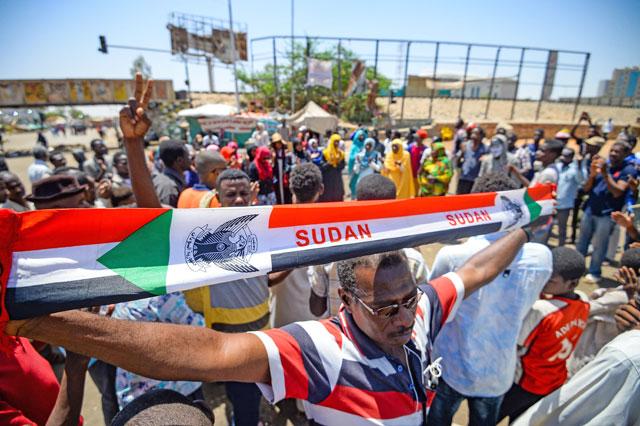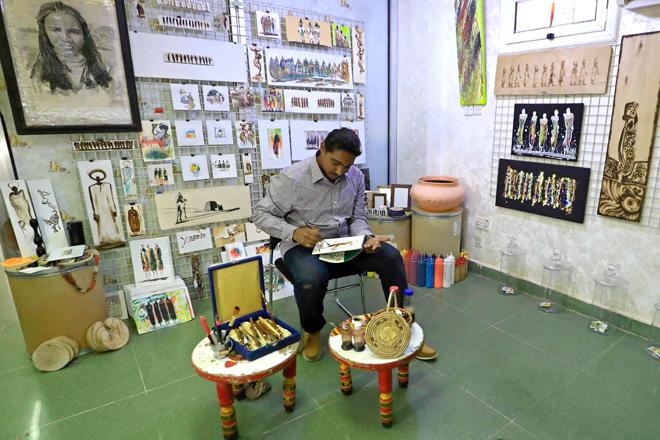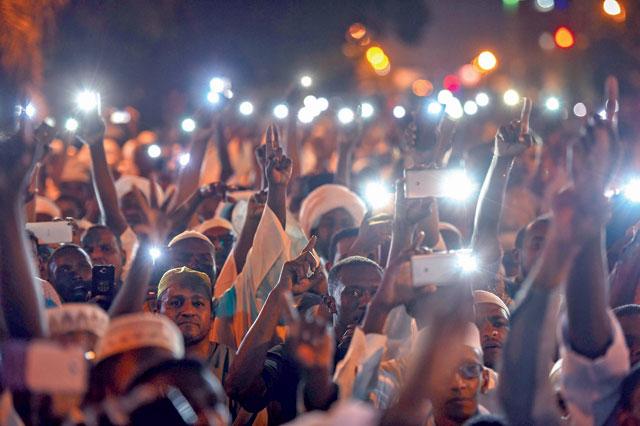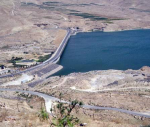You are here
Sudan protesters’ sit-in inspires cultural outpouring
By Reuters - May 07,2019 - Last updated at May 07,2019
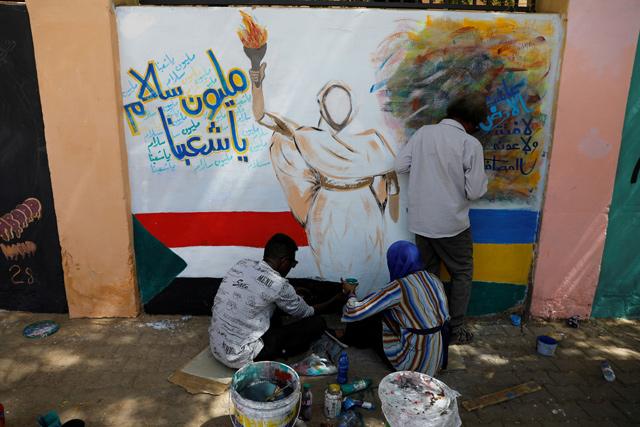
Rashid Drar (right), a 44-year old artist, works on a mural with his friends near the defence ministry compound in Khartoum, Sudan, on April 29 (Reuters photo)
KHARTOUM — Sudanese artist Rashid Drar used to work from home. Now the 44-year-old's canvas is any empty piece of wall he can find by a month-long sit-in outside the defence ministry in Khartoum.
Drar says it is his way of "being part of the revolution", a protest movement that brought down former president Omar Al Bashir on April 11 and is now pushing for the military council that replaced him to hand power to civilians.
"I draw for the Sudanese people. Art is something good, just as the revolution is," he says.
The wide street in front of the defence ministry where thousands have been protesting since April 6 has been transformed into a cultural hub ringed with makeshift tents.
Alongside fiery political speeches, crowds that have flocked to the area from across Sudan enjoy music recitals, dance shows, photography exhibitions, chess tournaments and book readings.
Most strikingly, the space has become an open-air exhibition of hundreds of wall paintings.
Amna Almahi, an out-of-work journalist, has used much of her time since the start of the protests to make murals.
She believes the struggle for democracy in Sudan will be a long one. She sees the artwork as an expression of the wounds from three decades of autocratic rule under Bashir.
"The people of Sudan have suffered greatly under political oppression," she says.
"Now they want freedom, equality and democracy. The political content of these wall paintings is exactly an expression of these demands."
Protesters and activists have been negotiating with Sudan's Transitional Military Council on forming a joint civilian-military body to oversee the country until elections.
But the parties are deadlocked over who would control the transition.
Tent school
Alaa Khojaly and her friends are holding art, reading, writing and music classes in a tent school they set up for street children.
"Democracy does not mean only freedom. If it comes, we believe we will have a higher grade of education, better healthcare," says Khojaly.
"These children are not receiving education and healthcare. So instead of letting them run loose among the protesters every day, we are trying to provide enjoyable and educational activities for them in our tent."
Sudan has been beset by a crippling economic crisis that triggered the protests against Bashir in December and continues to cause hardship for ordinary citizens. Activists and opposition groups suspect that the military are reluctant to cede real power.
But hope for a better future is sustaining the peaceful protest movement through its fifth month, says Alfarazdeg Abdallah, who holds art classes in another tent in the sit-in area.
"The Sudanese are keeping alive their hopes for democracy," he said. "True democracy will mean a better country in every way."
Related Articles
KHARTOUM — As Sudanese protesters blocked roads with burning tyres in the city of Omdurman on Tuesday, angry demonstrators at a Khartoum sit
KHARTOUM — Sudanese artist Mutaz Al Fateh creates vibrant pictures with special ingredients; the paint he uses is made with colours derived
KHARTOUM — Talks between Sudan's military council and protesters are set to resume, army rulers said Saturday, as hundreds of supporters of


